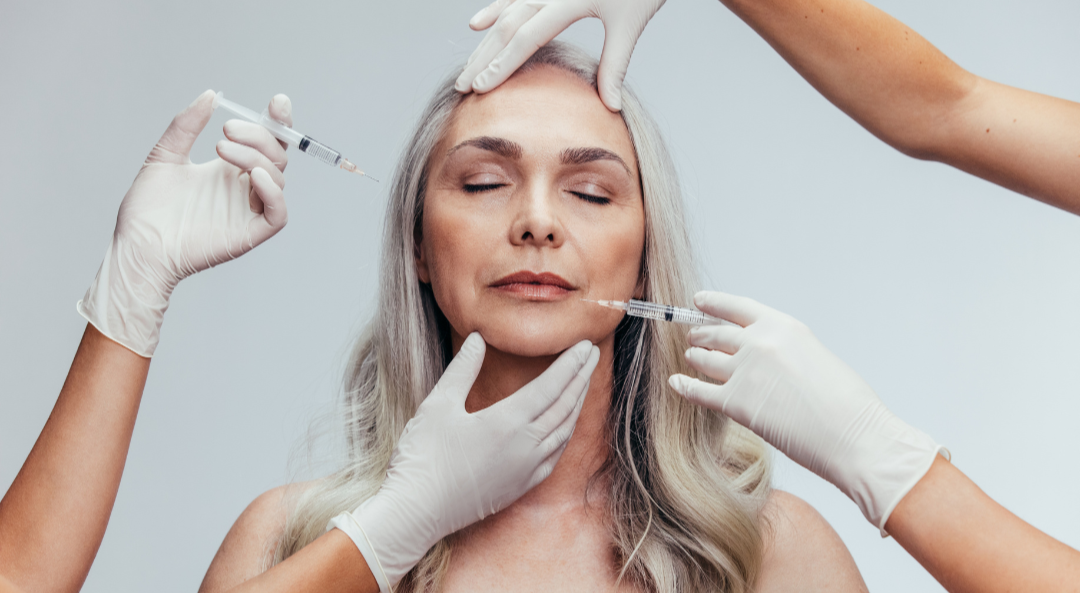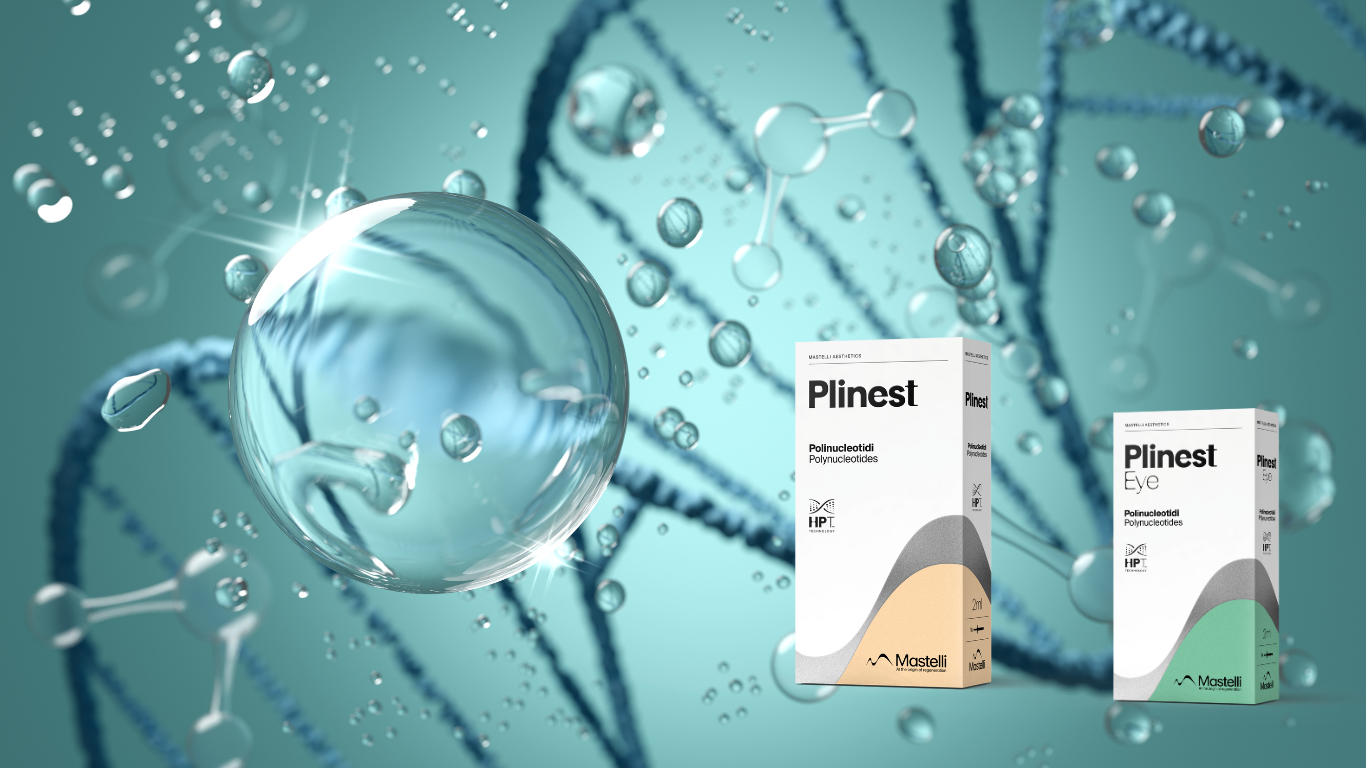Is Your Gut The Secret To Healthier Skin
Have you ever found yourself struggling with skin issues that keep recurring or never fully clear up, no matter what products you try? You’re not alone. What many people don't realise is that a lot of your skin concerns may not necessarily be about what you're putting on your skin, but instead stem from what's going on inside your body - specifically your gut. Gut health has been gaining more attention in the wellness world, but its connection to skin is still often overlooked.
In this blog, we’ll explore the powerful connection between your gut and your skin, known as the gut-skin axis. You’ll learn how gut imbalances can show up on your skin in the form of acne, eczema, rosacea, and more, and how conditions like leaky gut, poor nutrient absorption, and stress may be contributing to your skin concerns.
We’ll also cover key signs that your gut might be out of balance and most importantly, share practical tips that you can start using today. From eating more fiber and fermented foods to reducing sugar, managing stress, and staying hydrated, all to help heal your gut and support clearer, healthier skin from within.
So let's make sense of how it all connects…
Understanding the Gut-Skin Axis
Your gut microbiome is home to trillions of bacteria, fungi, and other microbes living in your digestive system that play a crucial role in your overall health. Interestingly, your skin also has its own microbiome. Similar to the gut, the bacteria and fungi on the skin acts as a protective barrier which shields you against destructive pathogens, supports immune function and neutralises environmental toxins.
So how does the gut and skin connect?
The skin and gut are connected through what is known as the “gut-skin axis”, this is a two-way communication pathway between the gut, brain and skin. Signals sent via the nervous system, the immune system, and the endocrine system can influence how the gut and skin interact. That means when your gut is out of balance, your skin often follows.
Skin conditions like acne, eczema, psoriasis, and rosacea have all been linked to imbalances in the gut. Inflammation, poor nutrient absorption, and microbial disruption in the gut can all show up on your skin in visible ways.
How an Unhealthy Gut Can Show Up on Your Skin
So how can you tell poor gut health is affecting your skin? When your gut microbiome is balanced, it helps keep your skin clear, calm, and resilient. When it’s disrupted, it goes into a state known as dysbiosis, which the effects can show up on your skin.
One important factor is a condition known as leaky gut syndrome. This occurs when the lining of your gut becomes too permeable, allowing toxins, bacteria, and undigested food particles to leak into your bloodstream. This can trigger systematic inflammation. This inflammation can show up as acne, flare-ups, irritations or rashes.
Your gut also plays a critical role in absorbing essential nutrients like zinc, omega-3s, and vitamins A, D, and E, which are all vital for healthy, glowing skin. When nutrient absorption is compromised, your skin loses the building blocks it needs to repair and protect itself.
Common signs your gut may be contributing to skin issues include:
Digestive Problems- Frequent bloating, gas, abdominal pain, constipation, or diarrhea could be more than just uncomfortable, they might be signs that your gut microbiome is out of balance. This imbalance can increase inflammation in the body, which can affect your skin.
Food Intolerances and Allergies: If your skin seems to react after eating certain foods like dairy, gluten, or refined sugar, this could be an indicator of gut inflammation. When the gut lining is compromised, the body may overreact to common foods, leading to skin irritation or breakouts.
Persistent Skin Conditions: Acne, eczema, rosacea, psoriasis, and even dandruff can all be symptoms of internal inflammation driven by poor gut health.
The Role of Stress in the Gut-Skin Connection
Stress also plays a major role in disrupting gut health. When you’re stressed, your body releases hormones like cortisol and adrenaline. These hormones can disrupt the balance of good and bad bacteria in your gut, weaken the gut lining, and increase inflammation throughout your body.
Since the gut and brain are deeply connected through the gut-brain axis, emotional stress can quickly lead to physical symptoms, including digestive issues and skin flare-ups. Chronic stress may even worsen conditions like acne or eczema by triggering inflammatory responses.
How to Improve Your Gut Health for Better Skin
1. Eat a Fiber-Rich Diet - Fiber acts as prebiotics, which are foods that support the good bacteria in your gut. This includes whole grains, vegetables, legumes, and fruit which help to feed these beneficial microbes, allowing them to produce short-chain fatty acids that reduce inflammation, strengthen the gut lining, and support immunity. Experts advise that we should aim to eat around 30 different types of fruit or vegetables across one week to contribute to good gut health and boost our microbiome.
2. Incorporate Fermented Foods - Fermented foods like yogurt, kefir, sauerkraut, kimchi, miso, and kombucha are rich in probiotics which are live cultures that support a balanced gut. Including these foods regularly in your diet, can help to restore beneficial bacteria and improve digestion, which directly supports clearer, calmer skin.
3. Limit Processed Foods and Sugar - Diets high in sugar and ultra-processed ingredients feed the harmful bacteria found in your gut which can lead to dysbiosis. Excess sugar also increases insulin, which can trigger excess oil production, known as a key contributor to breakouts. Long-term, excess sugar can damage collagen and elastin, accelerating signs of skin ageing.
4. Manage Stress- While you can't eliminate stress entirely, you can learn to manage it more effectively. Daily practices like breathwork, mindfulness, journaling, movement, and quality sleep can lower stress hormone levels and help protect your gut. Even small shifts in your routine can have a big impact on your skin and overall well-being.
5. Stay Hydrated - Staying hydrated is essential for keeping your gut and skin functioning at their best. Water is essential for digestion, nutrient absorption, and flushing toxins. A hydrated gut supports a healthy mucosal barrier that protects against harmful microbes. Hydration also helps your skin stay supple, clear, and balanced.
To Conclude
What’s happening on your skin is often a reflection of what’s happening in your gut. By nurturing your digestive health with nourishing food, probiotics, hydration, and stress-reducing practices, you can create a foundation for long-term skin wellness.
While scientists are still exploring the full extent of the gut-skin connection, one thing is clear: a healthy, diverse microbiome is key to radiant, resilient skin. Small, consistent lifestyle changes can make a big difference — helping you feel good on the inside and shine on the outside.
Thank you for taking the time to read. If you would like more information on how to improve your skin health, book in for a consultation with one of our experts today.
Yours Sincerely
Katelyn Munro
Marketing Co-ordinator Level 6 nutrition and dietitian student












